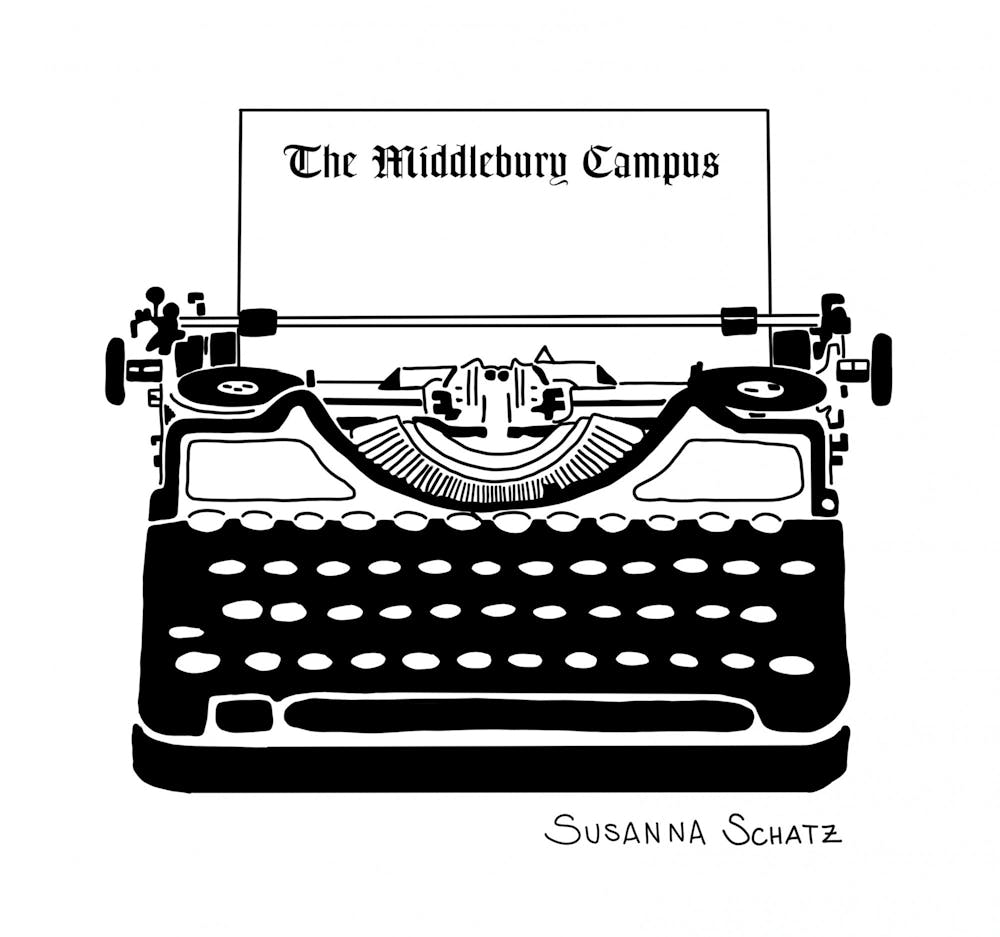Following a fall semester spent beset by email after email from the college administration recognizing personal and international tragedies, we have begun to reevaluate the importance of Middlebury’s administrative statements to the goals of the college as an academic institution. As we’ve watched other universities come under fire for various controversies in recent months, there is an imminent need to address the possibility of such attention returning to Middlebury — and what we can do to anticipate that.
While we acknowledge the unique set of challenges facing college administrations, we read these communications as inauthentic and, more importantly, symptomatic of a concerning decline in moral leadership across higher education in the U.S. During this time of unprecedented social tension, we believe that students, faculty and administrators should focus less on the impersonal bureaucracy and more on the rich relationships that define the Middlebury experience.
Some may assume Middlebury — nestled in the Champlain Valley, sheltered by liberal Vermont — is not implicated in wider national trends that challenge the value of universities. Our college’s name has not been dragged through the mud in Congress or on online platforms. But these issues can affect any institution, and sooner or later, Middlebury will be forced to acknowledge a diminished value on education as a whole if the recent trends of national backlash to higher education continue.
For college presidents today, the stakes are high, but confidence is low. Americans’ confidence in higher education fell to an all-time low of 36% in 2023, nearly half of what it was in 2015, according to Gallup. This decrease is fueled in part by increased public attention to higher education. This fall, as campus divisions deepened with the Israel-Gaza war, pundits, activists and politicians feasted on higher education’s weaknesses.
Just take a look at former Harvard President Claudine Gay, who gained national infamy after a disastrous appearance in front of Congress to testify on Harvard’s free speech policies while also falling victim to allegations of plagiarism. Or former University of Pennsylvania President Liz Magill, who was ousted in December 2023 by donors, alumni and politicians after backlash to her comments on how to punish those who called for the genocide of Jews. The media spotlight on college presidents pushes a no-confidence narrative and puts intense pressure on them not to slip up as the de facto representative of each institution.
As confidence declines, expectations for college presidents seem to simultaneously be rising. Activists from both sides of the ideological spectrum pressure administrators to endorse their opinions on controversial issues. At Middlebury, liberal students demand the school accept their progressive agenda, which can be at odds with the values of some of our donors. At times it feels as though our administration is cherry picking what controversies to respond to, suggesting that they are motivated by political pressures more so than actual human suffering.
We recognize that when navigating the interests and opinions of different groups, it is impossible for college administrations to take a stance that pleases everyone. Administrators should be expected to uphold academic freedom for faculty and free expression for students, however, even if the discussions are deemed offensive or controversial.
Social polarization and media sensationalism may create a difficult environment for college presidents, but we believe that the real issue is the expanding bureaucracy that incentivizes the school to function as a business, not a place of learning. While we understand that the bureaucracy of academia is in some ways necessary to govern thousands of faculty, staff and employees on campus, such structures disconnect us from the rest of the country. It can also tarnish the reputation of colleges and universities as pillars of learning and research essential to free thought, scientific progress and society.
We regret that colleges and universities — meant to be places of learning — have transformed into bureaucratic, highly impersonal systems held in the lurch of political debates and media sound bites. The real value of higher education comes from the personal relationships we make along the way. Our daily interactions with close friends, caring professors and invested mentors are the essence of the liberal arts experience. These moments help us learn how to think critically about complicated issues, develop strong characters and grow into our best selves. We believe that the administration’s stale virtue signaling is disconnected from this process and has a relatively low impact on actual campus life.
While we acknowledge that a message from the president can help students feel supported amidst global tragedies, we urge our college administrations not to place outsized importance on a singular email. Fostering conversations among students and administrators, encouraging professors to hold productive class debates and planning events on campus is where the more powerful value of a college president’s authority lies.
When you shed your contempt for the impersonal bureaucracy, you may even find warm gratitude for the administrators who run our school as they walk to work, make cameos in our music videos and support us in our education. We also encourage those who run Middlebury — members of the Senior Leadership Group, including President Laurie Patton — to make a conscious effort to engage with the student body on a day to day basis.
Come to our spaces, our events, our vigils, our performances — showing up demonstrates to us more respect than an email ever could, and it signals a key aspect of humanity that feels sorely lacking at the moment.



